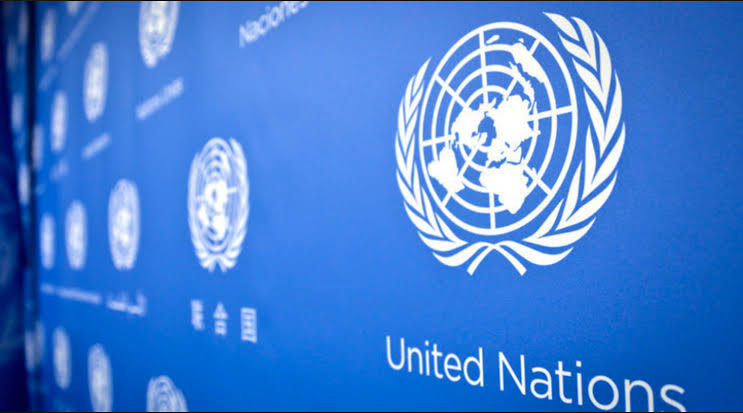…UN Calls For Urgent Support
The humanitarian community in Nigeria has called for urgent support for vulnerable people in the North-Eastern part of the country, as the number of people in need of life-saving aid has risen steeply.
Advertisement
At the same time, the living conditions of people and the security situation have significantly deteriorated since the beginning of the year.
Speaking at an online High-Level Briefing, the United Nations Resident and Humanitarian Coordinator,
Mr Edward Kallon, stressed that the Coronavirus pandemic had exacerbated the dire humanitarian situation in Borno, Adamawa and Yobe states.
He said the development may likely wreak havoc on the most vulnerable population within the region.
Kallon was joined by the Minister of Humanitarian Affairs, Disaster Management and Social Development, Hajiya Sadiya Umar Farouq and Borno State Governor, Prof Babagana Zulum, as well as other UN and Non-Governmental Organisation representatives,
Advertisement
He said, “The number of people needing humanitarian assistance is the highest ever recorded in five years of a joint humanitarian response.
“The COVID-19 pandemic is affecting us all. Its’ devastating effects will distress Nigeria’s most fragile region.
“Unless we take immediate action, we
should prepare for a spike in conflict, hunger and destitution in north-east Nigeria.”
The ongoing conflict in North-East Nigeria which is now in its 11th year and the upsurge in violence
witnessed over the past year in Borno, Adamawa and Yobe states, have deepened humanitarian needs.
He said over 10.6 million people out of a total of 13 million, or four in five people would need some form of humanitarian assistance this year.
Advertisement
This, according to him, is close to a 50 per cent increase in people in need since last year, mainly from increasing violence and insecurity further compounded by the COVID-19 pandemic.
The Representative and Country Director of the World Food Programme, Paul Howe, said the agency is concerned about the conflict-affected communities that already face severe hunger and are vulnerable to the socio-economic fallout from the pandemic.”
“They are on life support and need assistance to survive,” he added.
He said although humanitarian organisations are providing food assistance to over 2.5 million people, the food
security situation has gradually worsened over the past three years.
In an area where famine was
averted only a few years ago and where millions are still struggling day by day to find their next meal, he said the steep rise in prices and movement restrictions due to the COVID-19 pandemic are an insufferable shock.
He noted that up to 4.3 million people could now be facing hunger.
Advertisement
Chairman of the North-East Civil Society Forum, Ambassador Ahmed Shehu said accessing the most vulnerable communities has become more challenging even for civil society organisations,” explained
“Many of our colleagues have lost their lives in the service to humanity. We are urging the international community to support the North-East.
“It is important we all come together to provide assistance to people in need and work even closer together, especially with local actors.”
Since 2015, UN agencies and international NGOs have been working in North-East Nigeria in coordination with the Government, to provide life-saving assistance to those affected by the crisis that has ravaged entire communities in Borno, Adamawa and Yobe states.
In 2019, humanitarian organisations provided support to more than 5.2 million people. Over four million of them received
emergency health treatment or support, 2.4 million benefitted from food assistance; and, each day, aid workers saved the lives of over 650 children suffering from severe acute malnutrition.



